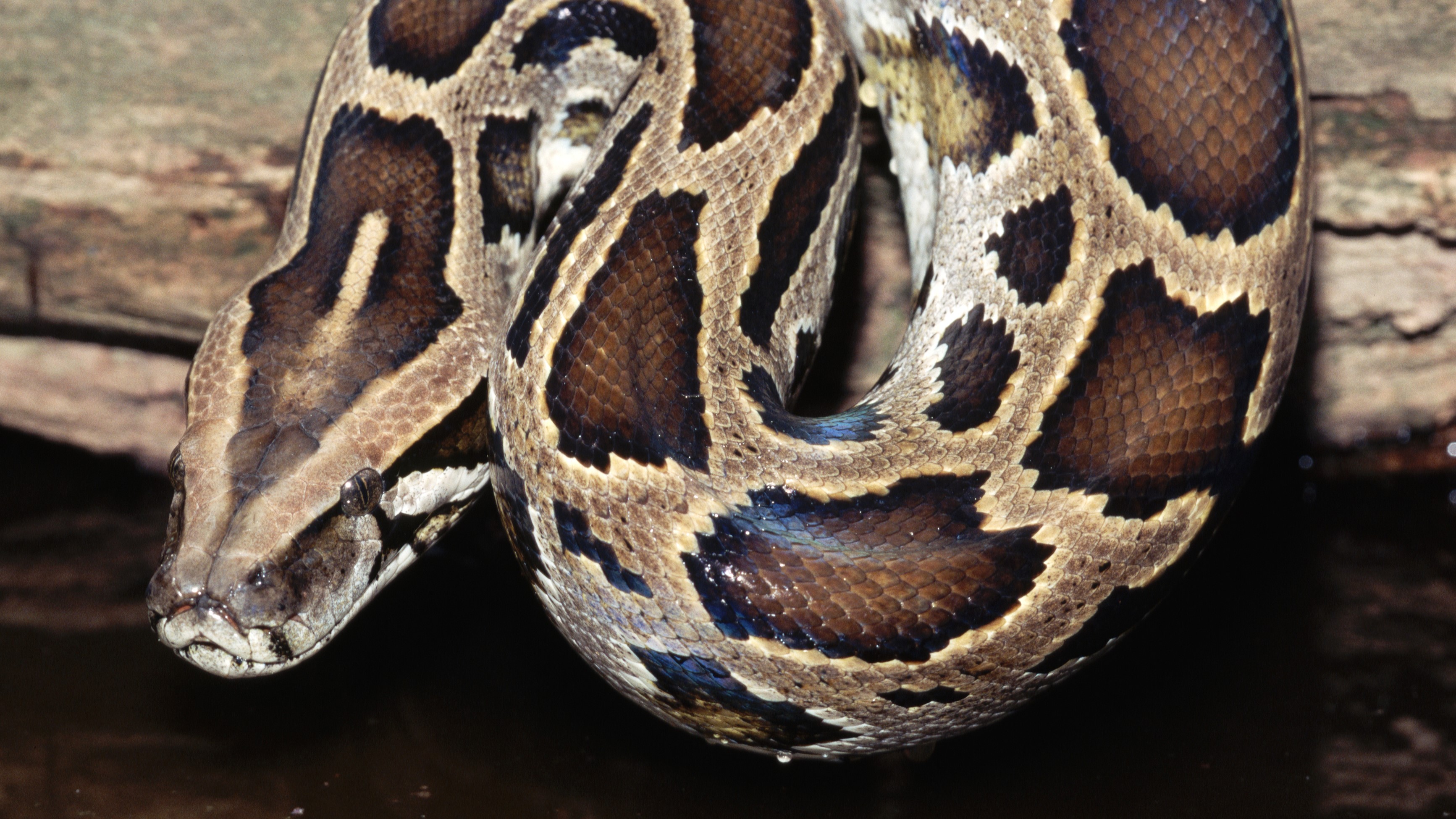200-pound 'monster' Burmese python finally captured in Florida after 5 men sit on it
A huge Burmese python caught in Florida is the second-heaviest ever caught in the state, weighing in at 198 pounds.

The second-largest Burmese python ever discovered in South Florida has been captured after give people sat on the enormous snake, which was found stretched out across a road in the Big Cypress National Preserve.
Initially, the python-hunters thought the female snake was an alligator due to its size. "It was more than a snake, it was a monster," conservationist Mike Elfenbein told CBS News.
After realizing it was a Burmese python (Python bivittatus), one of the men, Carter Gavlock, grabbed the snake's tail to constrain the animal, but it dragged him away. "That was a big mistake because the snake damn near took him into the canal. There was nothing he could do to stop it," Elfenbein said. Eventually, five men had to sit on the snake to capture it.
The python weighed 198 pounds (90 kilograms) and measured 17.2 feet (5.2 meters), making it the second-heaviest ever caught in Florida. The heaviest Burmese python was captured in 2022 and weighed 215 pounds (98 kg).
Related: Burmese pythons are helping rats take over Florida's Everglades — and that could help spread disease
Burmese pythons are native to southeast Asia and considered an invasive species in Florida. These snakes have a large breeding population within and around the Everglades and have proved devastating to native wildlife, despite efforts over recent years to reduce their numbers.
Pythons are hard to detect, which makes population estimates difficult, but tens of thousands of the snakes are thought to live in Florida. Research from the U.S. Geological Survey published this year found that more than 10,000 Burmese pythons have been captured in the state in the past five years.
Sign up for the Live Science daily newsletter now
Get the world’s most fascinating discoveries delivered straight to your inbox.
Nobody knows exactly how the species first arrived in the state. In the 1970s, the animals were popular in the pet trade and may have been released both accidentally and intentionally. Burmese pythons began to thrive in Florida in the 1980s and 1990s and have spread across nearly all of southern Florida.
Limiting the spread of Burmese pythons is a key goal of the Florida Fish and Wildlife Commission, and it is legal for people to hunt and kill them humanely.
Earlier this year, a 16-foot-long (5 m) Burmese python was caught and killed in the Florida Everglades with a clutch of 60 eggs that were days from being laid.

Lydia Smith is a health and science journalist who works for U.K. and U.S. publications. She is studying for an MSc in psychology at the University of Glasgow and has an MA in English literature from King's College London.










